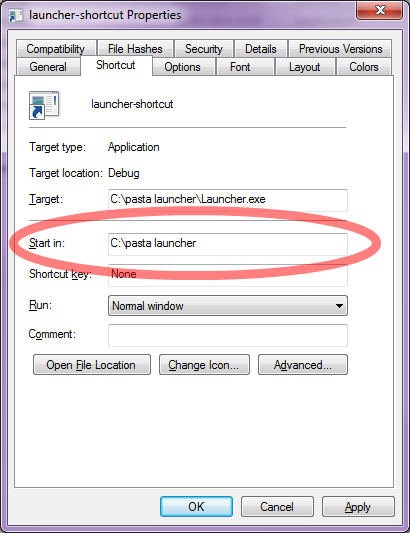Em C#, é possível obter o caminho para o executável do programa a ser executado.
string codeBase = Assembly.GetExecutingAssembly().CodeBase;
UriBuilder uri = new UriBuilder(codeBase);
string path = Uri.UnescapeDataString(uri.Path);
Em que Assembly está no namespace System.Reflection.
Isto dá-nos o caminho para o executável do launcher. Mas não é isto que é pretendido.
Se o launcher é "C:/pasta x/pasta launcher/launcher.exe", nós queremos ter o caminho para "C:/pasta x/pasta prog/".
string codeBase = Assembly.GetExecutingAssembly().CodeBase;
UriBuilder uri = new UriBuilder(codeBase);
string launcherPath = Uri.UnescapeDataString(uri.Path); //launcher.exe
string launcherDir = Path.GetDirectoryName(launcherPath); //pasta launcher
string appDir = Path.GetDirectoryName(launcherDir); //pasta x
string programPath = Path.Combine(appDir, "pasta prog", "program.exe");
Path pertence à namespace System.IO.
Com este código, ficamos com o caminho para o programa a executar na variável programPath.
Mas existe uma forma mais simples de obter caminhos relativos. Para isso, vamos combinar os métodos Path.Combine e Path.GetFullPath.
string codeBase = Assembly.GetExecutingAssembly().CodeBase;
UriBuilder uri = new UriBuilder(codeBase);
string launcherPath = Uri.UnescapeDataString(uri.Path);
string programPath = Path.GetFullPath(Path.Combine(launcherPath, "../../pasta prog/program.exe"));
